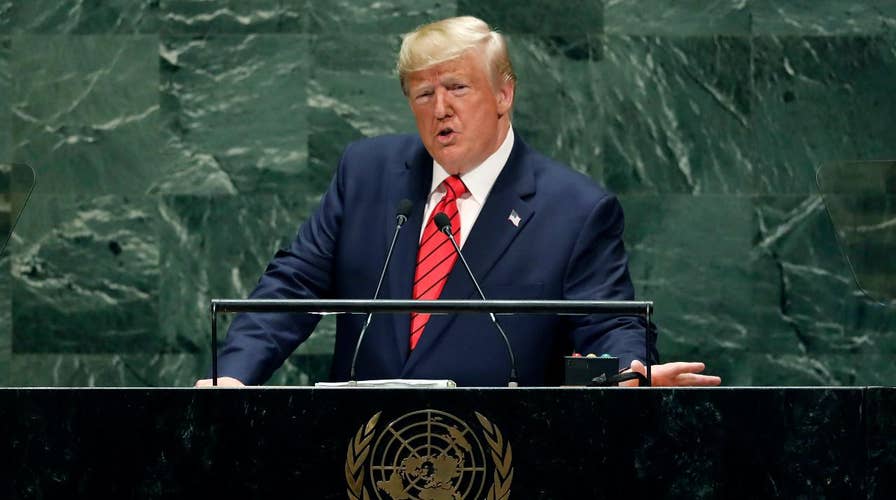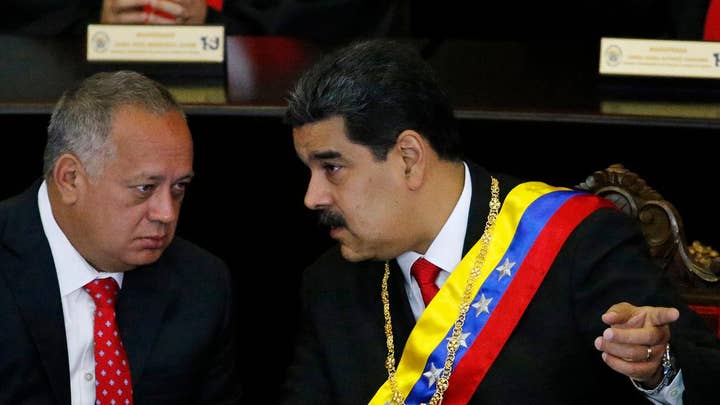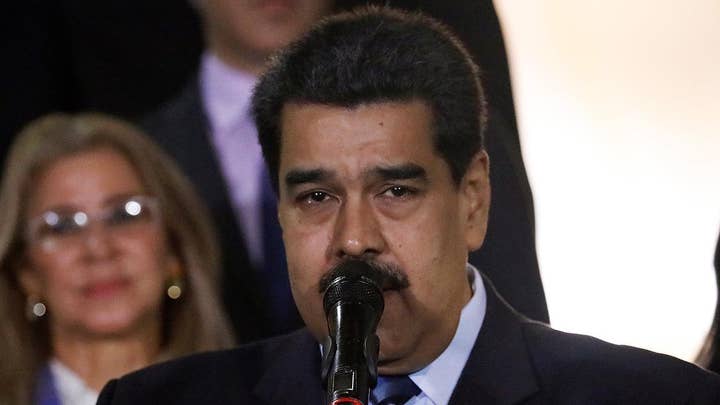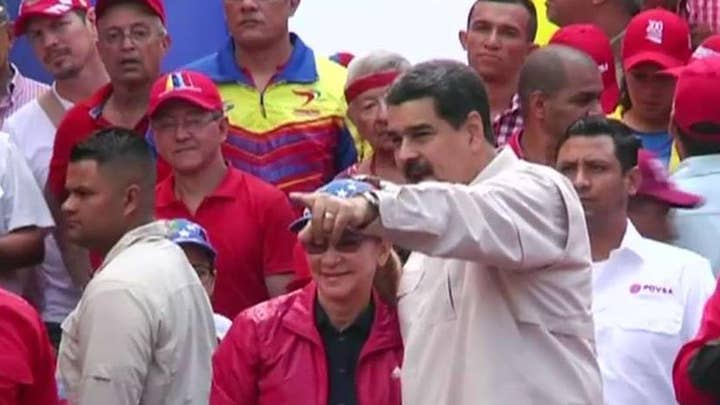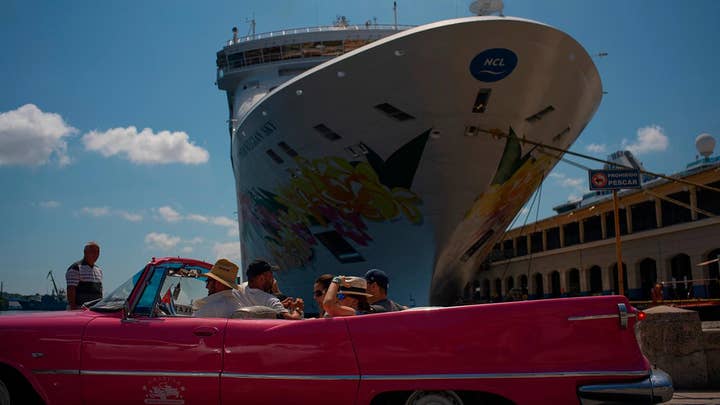President Trump: The future does not belong to globalists
Trump tells the United Nations General Assembly that the future belongs to patriots and sovereign and independent nations.
President Trump slammed Venezuela’s contested leader Nicolás Maduro on Tuesday during his speech at the United Nations General Assembly – calling Maduro a “Cuban puppet” who is “hiding from his own people” as Venezuelans suffer from massive shortages of basic supplies and gross human rights abuses.
But Trump’s derision of Venezuela’s leadership apparently fell on deaf ears among the representatives from the Maduro regime in attendance. One member of the troubled Latin American nation’s delegation was spotted casually reading a book, reportedly on Latin American independence leader Simón Bolívar, while the U.S. president spoke.
In his speech in New York, Trump sharply criticized the socialist policies of Maduro and his close ties to leaders in Cuba along with the practice of detaining political prisoners and reports of extrajudicial killings by death squads linked to leaders in Caracas.
WHO IS NICOLAS MADURO? WHAT TO KNOW ABOUT VENEZUELA'S SOCIALIST LEADER
“According to a recent report by the United Nation Human Rights Council, women in Venezuela stand in line for 10 hours every day waiting for food, over 15,000 people have been detained as political prisoners, modern day death squads are carrying out thousands of extrajudicial killings,” Trump said.
He added: “The dictator Maduro is a Cuban puppet, protected by Cuban bodyguards, hiding from his own people, while Cubans plunder Venezuela’s oil wealth to sustain its own corrupt communist rule.”
Home to the world’s largest oil reserves, Venezuela was for decades an economic leader in the western hemisphere and, despite a massive gap between rich and poor, was a major destination for neighboring Colombians and other Latin Americans fleeing their less prosperous and more troubled homelands.
But in 1999, with the rise to power of late leader Hugo Chávez – whose social and economic reforms initially endeared him to the poor but also set up an unsustainable system of state spending – Venezuela’s economy began to creep toward a crisis.
The situation has been exacerbated by Maduro, Chávez’s successor, who took power in 2013, and by a plunge in global oil prices in 2015.
Venezuela has been gripped by widespread malnutrition, disease and violence, and critics accuse Maduro of unfairly winning an election last year for a second six-year term by banning his popular rivals from running and jailing others.
TRUMP, MADURO CONFIRM 'SECRET' US-VENEZUELA TALKS
Trump’s speech to the UNGA comes a day after the United States and more than a dozen countries in Latin America agreed to investigate and arrest associates and senior officials of the Maduro government who are suspected of crimes like drug trafficking, money laundering and financing terrorism.
While the agreement stopped short of endorsing military action, Colombian Foreign Minister Carlos Holmes said the 16 countries voting for the legally binding resolution agreed to form working groups to share financial intelligence designed to target individuals and entities linked to Maduro's government.
Only Uruguay opposed the text, while Trinidad and Tobago abstained and Cuba wasn't present.
The actions taken against Venezuela are allowed under the Cold War-era Rio Treaty that the U.S.-backed opposition recently invoked for the first time since the Sept. 11, 2001, terrorist attacks in its bid to increase international pressure and force Maduro from power.
Many of the countries that signed the 1947 Rio Treaty already recognize opposition leader Juan Guaidó as Venezuela's legitimate leader. He declared himself interim president in January, citing what many saw as Maduro's fraudulent re-election last year.
Maduro, however, considers Guaidó a puppet of the Trump administration and still maintains power over Venezuela with backing from the military and nations including Cuba, China and Russia.
Venezuela and Cuba are closely aligned both politically and economically, with the former relying on Cuban medical and military support, while Havana receives aid from Caracas in the form of much-needed oil supplies.
Trump’s assertion that the Cuban government is plundering Venezuela’s oil wealth has been countered by leaders in Havana who say the country has been struggling with energy shortages across the island that are part of a Trump administration offensive that will fail to force concessions.
CLICK HERE FOR THE FOX NEWS APP
Cuban Foreign Minister Bruno Rodríguez blamed the Trump administration last week for energy shortages and long gas lines in Cuba and said that Washington is pressuring Cuba's energy suppliers across the world not to send petroleum products to the island.
During his annual press conference enumerating the effects of the U.S. trade embargo on Cuba, Rodríguez said the Trump administration was waging a campaign to pressure Cuba's fuel suppliers and shippers in South America, Europe and North Africa.
"These actions include direct threats, persecution of transport companies, pressure against governments where tankers are flagged or registered and actions against insurance companies, he said. "This is an escalation seeking to dissuade and intimidate, and to create additional difficulties for the Cuban people."
The Associated Press contributed to this report.








































